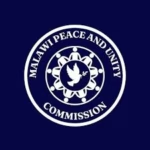Are you searching for security, peace, and conflict resolution jobs in Malawi? Ntchito.com is your premier destination for the most current and active positions within Malawi’s essential security and peacebuilding sectors. Whether you’re interested in roles within government security agencies, non-governmental organizations (NGOs), international peacekeeping missions, or research institutions in major cities like Lilongwe and Blantyre, our platform connects you with leading employers seeking dedicated and skilled professionals. Advance your career by exploring diverse opportunities in conflict analysis, peace negotiations, security management, humanitarian assistance, and more within Malawi’s dynamic peace and security landscape. Additionally, enhance your expertise with Courses & Trainings (Funded) and gain practical experience through Internship Opportunities. Stay ahead in your field with Ntchito.com’s comprehensive listings and resources tailored to security, peace, and conflict resolution professionals.

Security Assistant


Security Manager

Director General (DG)



FAQs for Security, Peace, and Conflict Resolution Jobs in Malawi
How is the demand for Security, Peace, and Conflict Resolution professionals evolving in Malawi’s public and private sectors?
The demand for Security, Peace, and Conflict Resolution professionals in Malawi is steadily increasing, driven by ongoing efforts to maintain national security, promote peacebuilding initiatives, and address emerging conflicts. As Malawi continues to strengthen its governance structures and implement policies aimed at fostering peace and stability, the need for skilled professionals in these areas grows correspondingly. This trend is further fueled by the rise of international organizations and NGOs focused on humanitarian aid, development projects, and conflict resolution, creating a broad spectrum of job opportunities for qualified security and peace professionals.
In addition to traditional roles in government and law enforcement agencies, there is a growing demand for professionals adept in modern security technologies, strategic peace negotiations, and community-based conflict resolution. The integration of technology into security operations and peacebuilding processes is creating new opportunities for those with expertise in cyber security, data analysis, and digital communication within the peace and security fields. Staying informed about these industry trends through resources like Job in Malawi and Energy Sector Jobs in Malawi can help candidates identify emerging opportunities and align their skills with market demands. Furthermore, the increasing emphasis on inclusive and sustainable peace initiatives is enhancing the value of security and conflict resolution professionals in both public and private sectors.
What key skills and competencies are essential for success in Security, Peace, and Conflict Resolution roles in Malawi?
Success in Security, Peace, and Conflict Resolution roles in Malawi requires a combination of technical expertise and soft skills. Key technical skills include proficiency in conflict analysis, peacebuilding methodologies, and security management. Candidates should be adept at using analytical tools and frameworks to assess conflict dynamics, develop strategic peace initiatives, and implement effective security protocols. Additionally, experience with negotiation techniques, mediation, and strategic planning is essential for facilitating peace agreements and managing security operations.
On the soft skills front, employers value excellent communication and interpersonal abilities, as security and peace professionals often interact with diverse stakeholders, including government officials, community leaders, and international partners. Critical thinking and problem-solving skills are crucial for developing innovative solutions to complex security challenges and conflict scenarios. Leadership and team management skills are essential for coordinating peacebuilding projects and managing security teams effectively. Additionally, cultural sensitivity and the ability to work in diverse and challenging environments are important for fostering inclusive and sustainable peace initiatives. Enhancing these skills through Courses & Trainings (Funded) and Soft Skills Training can make candidates more attractive to potential employers and facilitate career advancement.
How can Security, Peace, and Conflict Resolution professionals in Malawi advance their careers and stay competitive in the job market?
Career advancement for Security, Peace, and Conflict Resolution professionals in Malawi involves a strategic combination of education, skill development, and networking. Pursuing advanced degrees or specialized certifications can open doors to higher-level positions and specialized roles within the security and peacebuilding sectors. Engaging in continuous learning through Training Opportunities helps professionals stay updated with the latest conflict resolution techniques, peacebuilding strategies, and security technologies.
Networking is another critical component for career growth. Building connections with industry peers, attending peace and security conferences, and participating in professional associations can provide valuable insights and job leads. Additionally, gaining experience in diverse roles within security and conflict resolution, such as working in different governmental departments, international organizations, or community-based initiatives, can enhance a professional’s versatility and marketability. Utilizing resources like Consultancy Projects and Internship Opportunities can also provide practical experience and facilitate transitions into more advanced roles. Furthermore, developing a strong personal brand and leveraging online platforms, such as LinkedIn, can increase visibility and attract potential employers.
What are the common challenges faced by Security, Peace, and Conflict Resolution professionals in Malawi, and how can they overcome them?
Security, Peace, and Conflict Resolution professionals in Malawi often encounter challenges such as political instability, limited resources, and the complexities of addressing multifaceted conflicts. Political instability can create volatile environments, making it difficult to implement effective peacebuilding initiatives and maintain security. Limited resources, including funding and access to advanced technologies, can hinder the ability to conduct comprehensive conflict analysis and implement strategic security measures. Additionally, addressing multifaceted conflicts that involve various social, economic, and cultural factors requires a deep understanding of the underlying issues and the ability to develop holistic solutions.
To overcome these challenges, professionals can seek out continuous education and training to enhance their knowledge of advanced conflict resolution techniques, strategic security management, and peacebuilding methodologies. Engaging in Courses & Trainings (Funded) can provide access to the latest tools and best practices in security and conflict resolution. Building a strong professional network through Networking Strategies for Job Seekers can offer support, resources, and collaborative opportunities to address resource limitations and political challenges. Additionally, leveraging technology and innovative peacebuilding solutions, such as digital conflict monitoring systems and community-based peace initiatives, can enhance the effectiveness and reach of security and conflict resolution efforts in Malawi. Advocating for better funding and support from government and international donors can also contribute to improving the overall capacity and sustainability of peace and security programs in the country.